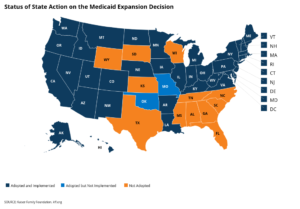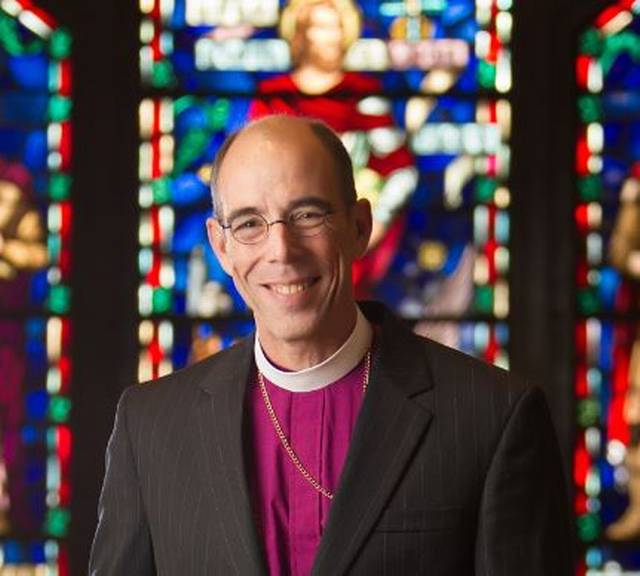God does not ask us at the judgment day if we have decreased the size of government. But God will ask us how we have treated the poor and how we’ve treated the most vulnerable among us. – The Rt. Rev. Brian Seage, Bishop of the Episcopal Diocese of Mississippi
Mississippi House speaker Philip Gunn and Governor Tate Reeves oppose Medicaid expansion in the state. Lacking their support, Mississippi is likely to remain one of 12 states that have not expanded Medicaid.

Medicaid expansion is part of the Affordable Care Art of 2010 covers adults whose income exceeds Medicaid eligibility but below the minimum for Marketplace premium credits. The US Supreme Court ruled in 2012 Medicaid expansion unconstitutionally coercive on states. The effect was to leave expansion up to individual states.
Earlier this year, 300 religious leaders signed a letter in favor of Medicaid expansion.
The Episcopal bishop of Mississippi, The Rt. Rev. Brian Seage, said at a press conference in support of expansion, “God does not ask us at the judgment day if we have decreased the size of government. But God will ask us how we have treated the poor and how we’ve treated the most vulnerable among us.”
From the letter:
Within the scriptures of all faiths, there are myriad passages with a single message, “Love your neighbor as yourself.” How better to show love for our neighbors than to show concern for their health and well-being? As more and more of us are confronted with the realities of the impact of this COVID-19 pandemic, there are serious concerns regarding the state of healthcare in Mississippi.
● More than 300,000 adults in Mississippi are without health insurance, most of whom work but do not have insurance through their employer.
● State unemployment has significantly increased as a result of the pandemic; thus, resulting in an increase in the number of uninsured persons;
● Prior to the pandemic, five rural hospitals closed; half of those remaining are at high financial risk. The pandemic increased this risk.
● The effect of the pandemic on the working poor and minorities has proven to be vastly disproportionate, in part because of the lack of sufficient access to healthcare.
● In its efforts to control and contain the effects of this health crisis, Mississippi has again been offered the opportunity to answer the question of how to deliver a system of adequate and equitable healthcare to all its citizens.
House speaker Gunn, who often sees issues in religious terms, does count Medicaid expansion as one of those. MississippiToday:
Gunn has often spoken of his Christian faith as a prime motivator in his support for changing the flag.
“We must always remember our past, but that does not mean we must let it define us,” Gunn said in 2015 after the tragic murder of nine people at Emanuel African Methodist Episcopal Church in South Carolina. “As a Christian, I believe our state’s flag has become a point of offense that needs to be removed.”
…
Gunn’s Christian faith has often manifested itself in his politics, whether it be on anti-abortion bills, anti-human trafficking efforts or the bill he authored in 2016 to allow government and private sector employees to not provide services to same-sex couples based on religious objections.

